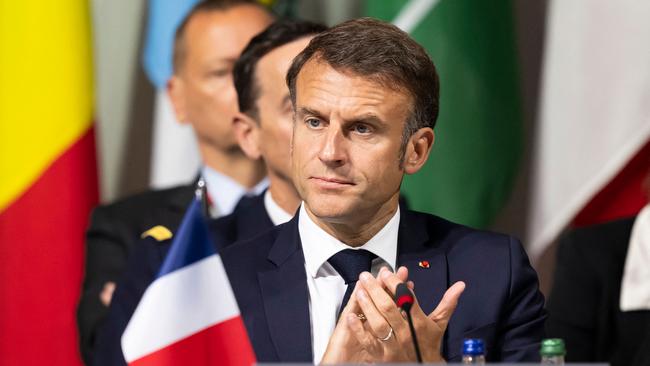Far right might emerge triumphant as Macron rolls election dice

It’s a sobering thought.
But that, according to experts in France, is the most likely outcome of national parliamentary elections Emmanuel Macron triggered after his centrist alliance were hammered at the hands of the far right Rassemblement National (National Rally) of Marine Le Pen.
Yet these were European not French elections on June 9. So why did Monsieur le Président take the breathtaking decision to dissolve the national parliament? Well, the answer lay ostensibly in the extent of his party’s defeat, securing less than half the vote of its well-oiled rival.
The underlying personal sentiment, though, could be just plain old frustration at the situation of domestic policy inertia in France. And that, it must be said, would be understandable.
Getting even basic reform through the French National Assembly has become a herculean task, especially since the last national elections mid-2022 resulted in a precariously hung parliament, strung out between a weak mainstream right (Les Républicains), now split in all but name, and a toxic left-wing alliance of circumstance (last week renamed the New Popular Front) under the auspices of a full-tilt, anti-system Trotskyist, Jean-Luc Mélenchon.
At the time, numerous political pundits saw the outcome as the dawn of a newly sophisticated era in French politics, where policy solutions would be artfully negotiated on a case-by-case basis in the national interest.
Nothing doing. “Emmanuel Macron is like a fly in a jar, condemned to spin and flap about to avoid sinking,” as academic Benjamin Morel memorably described it. “But success is really impossible because no opposition (element) is prepared to get him out of the situation he finds himself in.” Or the country.
Raising the retirement age by two years to 64, gently in stages to 2030 — Macron’s emblematic reform over seven years in government — was like drawing blood from the proverbial stone. Obstreperous political next-of-kin, on the left of the right and the right of the left, were defiant in opposing even that modest change, although closely resembling their own failed attempts at reform when in office.
Yet addressing the nation to call the snap poll, the President spoke not of frustration, but of the higher moral ground of democratic principles. He had no choice, he said, but to return to the people for “clarity” in a two-round poll on June 30 and July 7.
Some observers concurred. This was the “choice of democracy”, said the regional daily in Strasbourg — home of the European Parliament (well, one of two EU Parliaments) — “to call the President’s decision a Kamikaze operation is to show a lack of confidence in democracy”.
Unless of course, the “Kamikaze” turns out to be an operation that crash lands into the President. And the majority view here seems to be that it will.
The right-leaning Le Figaro newspaper editorialised: “The progress of the Rassemblement National is no accident. It translates an anger that comes from long ago, that is now unfurling across Europe.”
The extraordinary thing, though, is that Macron has long depicted himself as the great rampart against the threat of the far right, the “chaos” of it, while setting that posture in the context of a deep-seeded commitment to Europe.
Indeed, that commitment has been his Rosetta stone, the key, or so it seemed, to his whole approach to international policy even as critics lambasted, for example, his lengthy efforts to, at first, appease the Russian dictator Vladimir Putin, and then appear as his most hawkish European adversary.
The irony is that it is only a fortnight ago that Macron was giving voice to that European imperative, hosting notably the US and Ukrainian Presidents for the 80th anniversary of the Normandy landings — galvanising a lofty pro-democracy approach through the prism of history. Now he’s taken the terrible risk of diminishing Europe, and France within it, by leaving the door open to a far right party that is traditionally militantly anti-European.
Confusing is that a month ago, the President said in a newspaper interview that he would draw from a European election only European conclusions.
“Write history rather than submit to it”, Macron said in his national address, but he might be about to have to submit to it.
Richard Ogier in an Australian journalist and consultant in Strasbourg.






Might it only now be dawning on the President of France, that when the Olympic Games begin in Paris next month, he could be sitting at a cabinet table of far right ministers responsible for the security of the event?